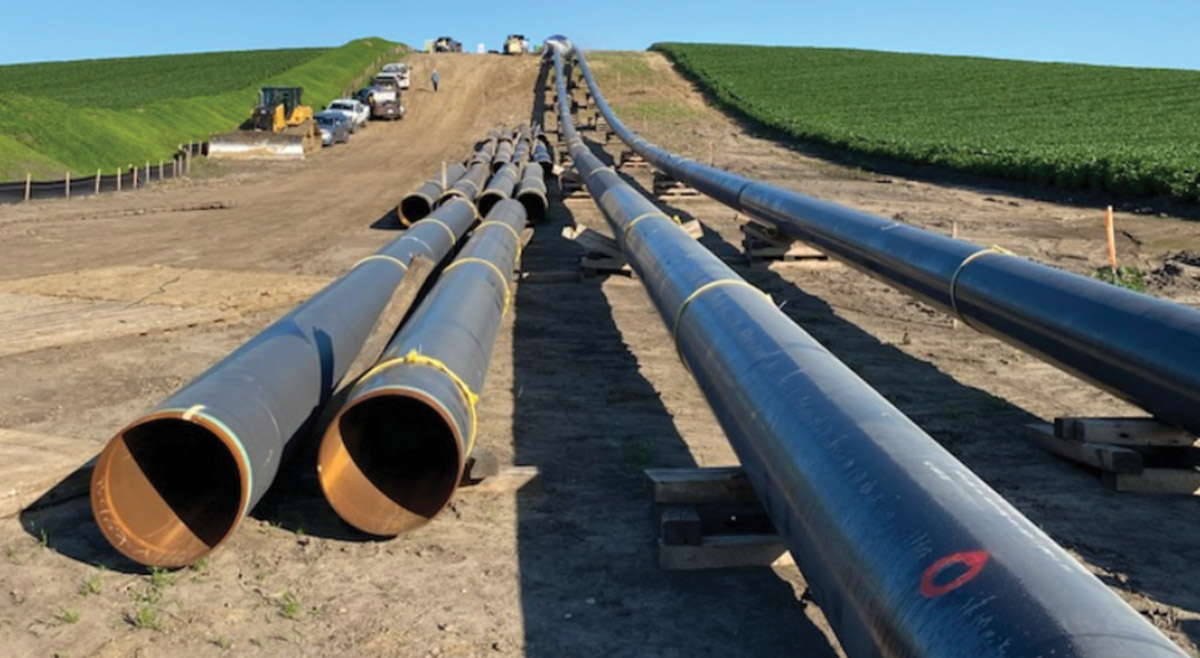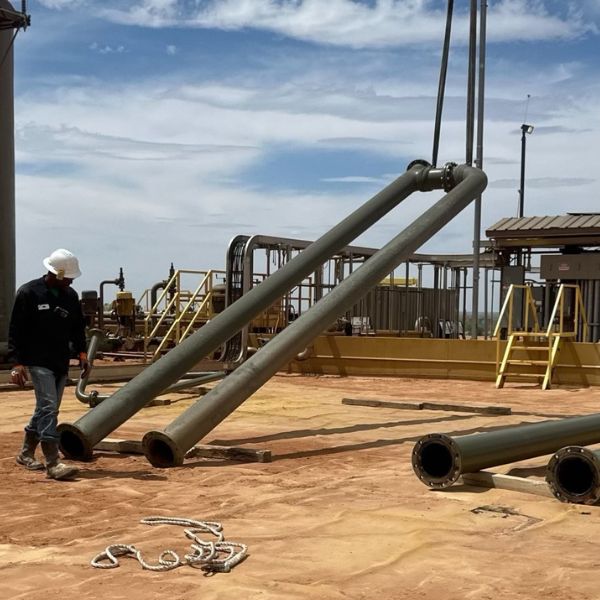Pipeline Construction Services: What Types of Pipelines Can They Handle?
The Crucial Overview to Understanding Pipeline Construction Providers and Their Importance
Pipeline Construction services are fundamental to the transport of vital sources such as oil, water, and gas. These services involve precise planning and implementation, adhering to stringent security and ecological requirements. As the market adapts to modern challenges, recognizing its components and effects becomes progressively crucial. What variables add to the growing importance of these services in today's economic climate? The complying with areas will certainly check out these essential facets.
Overview of Pipeline Construction Services
Pipeline Construction services include a variety of tasks vital for the installation and upkeep of pipes made use of to transport different materials, including water, gas, and oil. These solutions are essential for ensuring the safe and efficient activity of sources from one place to another. The process typically starts with comprehensive preparation and style, which takes right into account regulative needs, environmental factors to consider, and logistical obstacles.
Excavation and grading of the land are performed to prepare the site for Pipeline setup once planning is full. This is complied with by the real laying of the pipelines, which entails welding or signing up with areas together to develop a continual circulation path. After installation, extensive testing is performed to guarantee honesty and safety. Maintenance services are also supplied to attend to any kind of concerns that might emerge in time. On the whole, Pipeline Construction solutions play a crucial function in sustaining infrastructure for energy and water distribution.
Secret Parts of Pipeline Construction
A successful Pipeline Construction project depends on several essential elements that guarantee the secure and effective installation of the Pipeline system. Detailed site assessments are vital, as they determine the environmental and geographical variables that may influence Construction. Next, the choice of appropriate materials, such as pipelines and fittings, is important for securing resilience and compatibility with the transported compounds.
Furthermore, advanced Construction techniques, consisting of trenchless modern technology and directional drilling, enhance effectiveness and minimize environmental influence. Reliable task monitoring is one more crucial part, working with labor, devices, and timelines to fulfill task goals.
Additionally, interaction among stakeholders, including designers, professionals, and local authorities, guarantees positioning on project requirements and demands. Ultimately, extensive top quality control steps throughout the Construction process make certain conformity with industry requirements and maximize the Pipeline's operational lifespan. Jointly, these parts form the backbone of an effective Pipeline Construction project.
Safety Requirements and Regulations in Pipeline Construction

Regulative bodies, such as the Occupational Safety And Security and Health Administration (OSHA) and the Pipeline and Hazardous Materials Security Management (PHMSA), stated certain requirements that govern Construction practices. These include protocols for equipment usage, employee training, and emergency situation action treatments. By implementing these standards, Construction firms not only secure their employees but also protected public trust fund. Inevitably, strenuous security actions add to the lasting success of Pipeline jobs, guaranteeing they meet both functional and environmental assumptions.
Environmental Factors To Consider in Pipeline Projects

Ecological factors to consider are important to the planning and implementation of Pipeline projects. These jobs should evaluate possible effect on environments, water sources, and regional wildlife. Performing comprehensive environmental effect assessments (EIAs) is crucial, permitting stakeholders to determine and alleviate threats before Construction starts.
Protecting sensitive locations, such as wetlands and habitats, typically requires implementing specific layout features or alternative directing to minimize interruption. Additionally, Pipeline drivers are charged with establishing techniques for preventing leaks and spills, which can have damaging results on the setting.
Engagement with neighborhood communities is necessary, as public concerns can bring about task alterations that boost environmental management. Conformity with laws established by ecological firms guarantees that tasks satisfy sustainability standards, cultivating a balance between infrastructure demands and environmental conservation. Eventually, addressing ecological considerations not only safeguards nature yet also promotes community trust fund and job feasibility.
The Function of Technology in Pipeline Construction
Innovation plays an important duty in modern Pipeline Construction, improving performance and accuracy. Advanced evaluating methods enable exact preparation and execution, reducing environmental impact and project hold-ups. Additionally, the integration of automation and robotics improves procedures, decreasing labor prices and enhancing safety and security on Construction sites.
Advanced Checking Methods
Advanced checking techniques play a crucial function in the successful implementation of Pipeline Construction tasks. These methods leverage sophisticated technology to ensure accurate mapping and evaluation of the surface where pipelines will certainly be mounted. Techniques such as Geographic Details Equipment (GIS), LiDAR (Light Discovery and Ranging), and 3D modeling make it possible for designers to examine the landscape and visualize, identifying environmental concerns and possible obstacles. By utilizing these advanced devices, teams can boost accuracy ready and alignment, significantly minimizing the threat of errors throughout Construction. In addition, real-time information collection enables instant modifications and notified decision-making throughout the project lifecycle. Inevitably, these evaluating advancements add to improved effectiveness, safety, and sustainability in Pipeline Construction initiatives.
Automation and Robotics

Economic Effect of Pipeline Facilities
Pipeline infrastructure plays an essential duty in forming local economies and assisting in trade. By providing a trusted means of moving oil, gas, and other commodities, pipelines decrease transportation costs and improve supply chain performance. This facilities attracts investment, boosts work creation, and fosters financial growth in surrounding locations.
The Construction and maintenance of pipes contribute considerably to neighborhood economic climates, producing numerous work opportunities in different sectors, from design to labor. The increase of jobs frequently results in enhanced investing in local companies, even more strengthening economic task.
In addition, pipes enhance power safety and security by making sure a secure supply of sources, which is vital for domestic demands and commercial operations. As areas end up being adjoined with Pipeline networks, they access to more comprehensive markets, enhancing competition and financial strength. Consequently, the financial effect of Pipeline framework is complex, affecting both instant neighborhood economies and wider regional growth.
Future Trends in Pipeline Construction Services
The future of Pipeline Construction services is evolving in reaction to technical improvements, regulatory changes, and growing environmental considerations. Developments such as robotics and drones are streamlining evaluation and maintenance processes, enhancing safety and security and effectiveness. Automation is poised to lower labor expenses and increase accuracy in Construction operations. Furthermore, the increasing focus on sustainability is motivating firms to embrace environment-friendly products and techniques, straightening with global efforts to lower carbon footprints.
Governing structures are additionally adjusting to attend to ecological impacts, pressing for greater openness and liability in Pipeline projects. In addition, the integration of smart modern technologies, consisting of real-time tracking systems, is anticipated to boost the integrity and efficiency of Pipeline networks. As power needs shift toward renewable resources, Pipeline Construction services will likely see a rise in tasks connected to biofuels and hydrogen transport. On the whole, these fads show a transformative period for the Pipeline Construction sector, concentrated on innovation and sustainability.
Regularly Asked Inquiries
What Kinds of Pipelines Are Frequently Constructed?
Various kinds of pipes are commonly created, consisting of oil, water, sewer, and gas pipelines - Pipeline Construction Services. Each offers distinctive purposes, helping with the transport of vital sources throughout areas while adhering to safety and environmental laws
For how long Does a Typical Pipeline Job Take?
The period of a typical Pipeline project differs considerably, often varying from numerous months to a few years. Elements affecting this timeline include task complexity, regulative authorizations, and ecological considerations he said that need to be resolved.
That Regulates Pipeline Construction Business?
Pipeline Construction companies are controlled by numerous federal, state, and local agencies, consisting of the Pipeline and Hazardous Materials Safety Management (PHMSA) and state utility payments, making certain conformity with security and ecological criteria throughout the Construction process.
What Prevail Materials Made Use Of in Pipeline Construction?
Usual materials utilized in Pipeline Construction consist of polyethylene, steel, and pvc. Each this website product offers unique advantages such as resistance, sturdiness, and versatility to deterioration, making them appropriate for various applications in delivering gases and fluids.

Exactly How Are Pipeline Construction Expenses Approximated?
Pipeline Construction prices are estimated by assessing variables such as material expenses, labor rates, project intricacy, ecological considerations, and regulatory requirements (Pipeline Construction Services). Precise price evaluation assurances effective budgeting and task planning throughout the Construction procedure
Pipeline Construction solutions incorporate an array of tasks crucial for the setup and maintenance of pipelines utilized to deliver numerous compounds, consisting of water, oil, and gas. An effective Pipeline Construction project counts on a number of vital components that guarantee the secure and reliable setup of the Pipeline system. Advanced surveying techniques play a necessary role in the effective execution of Pipeline Construction projects. Numerous kinds of pipelines are generally constructed, including oil, water, gas, and sewer pipelines. Pipeline Construction expenses are estimated by evaluating factors such as product expenditures, labor rates, task complexity, ecological factors to consider, and governing requirements.